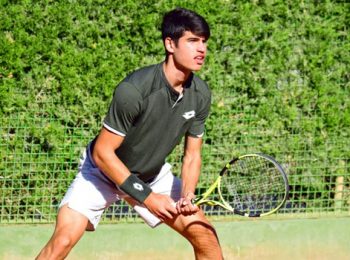Indian top tennis player, Ankita Raina, has expressed her disappointment missing out on Palermo Open.
To Ankita, such a situation is unfair to women’s tennis governing bodies (WTA). The WTA staged a Tour event in Italy that was once the epicenter of COVID-19. There are quarantine restrictions in the country after lifting lockdown restrictions as normalcy returns gradually.
This is the first WTA tour, and the winner will walk away with €163,000. Action will resume during the week after sporting activities where put on hold in March following the coronavirus outbreak that left over 25,000 people dead in Italy.
As a result of the 14-day quarantine for those arriving from India (among others, Raina, who is ranked 163rd in the world won’t be part of the event despite qualifying for the draw. The quarantine restrictions have therefore made featuring in the competition out of bound for the 27-year-old Indian.
Speaking on the development, Raina said it is unfair on the part of WTA to hold tournaments that offer ranking points in countries with quarantine rules.
While noting that some players are scared to travel, Raina said she wants to play. She is, therefore, calling on the WTA to have facts checks before having such a tournament.
As a result of her absence, some players will be attending will be getting some ranking points, which puts her at a disadvantage.
Raina, who said WAT ought not to allot ranking points to such tournaments because other top players will miss out. The quarantine rule also affects world number 2, Simona Halep. The Romanian had to pull out of Palermo Open because players from her country too must undergo quarantine on their arrival.
Also speaking on the development, Raina’s coach Hemant Bendrey, noted that players from India and China would be at a disadvantage over the new guideline ahead of next year’s Olympics.
Although the ranking will be frozen, the new guideline gives some European players a headstart because they would have had some game time when normalcy returns.
Written by: Oladipupo Mojeed




























